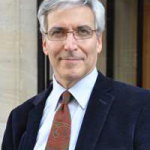General Stanley McChrystal makes a case for sharing knowledge beyond the traditional need-to-know model and talks about the benefits of information dissemination. In his explanation of the significant culture shift from “who needs to know” to “who doesn’t know, and we need to tell, and tell them as quickly as we can” you can see the need for mapping knowledge networks and communication networks and understanding the connections between them. http://www.ted.com/talks/
The U.S. Launched Dozens Of Social Networks Abroad To Promote Democracy
In the wake of the Arab Spring, the US sponsers social media to secure democratic change. http://thinkprogress.
Social-Networking Technology Unlocks Mystery of Chimp Civil War
http://www.nbcnews.com/science/environment/social-networking-technology-unlocks-mystery-chimp-civil-war-n103206 Notes of the Chimpanzees were taken over a four year period. The alpha male had died and some of the chimps followed a male named Humphrey, in the North. Others followed two brothers, Hugh and Charlie, in the South. One of the software pieces that helped figure out the social ties between chimps was UCINET. It showed that the chips decided who to stay with based upon the amount of time they had spent together before the alpha male, Leakey, passed away.
Managed Practice Networks Prove Effective in Preventing Heart Disease Mortality
In the United Kingdom, Tower Hamlets Primary Care Trust allocated their 34 local practices into 8 geographical networks, equipped with a network manager, administrative assistant, and an educational budget to deliver care packages for diabetes, childhood immunization, chronic obstructive lung disease, and cardiovascular disease. Tower Hamlets PCT outpaced England and surrounding PCTs in the coming years in reducing deaths due to cardiovascular disease and increasing the amount of cholesterol prescriptions.
The gponline article can be found at: http://www.gponline.com/local-gp-practice-networks-save-lives-boost-qof-scores-study-finds/cardiovascular-system/myocardial-infarction-left-ventricular-dysfunction/article/1293427
The British Journal of General Practice paper can be found at: http://bjgp.org/content/64/622/e268.full.pdf+html
Why you should talk to more strangers
If you’ve ever been on a subway or public bus, you know the rules. Don’t make eye contact, stay as far away from other people as the space allows, and for the love of God, don’t talk to anyone. But what if the rules are wrong? Behavioral scientists Nicholas Epley and Juliana Schroeder approached commuters in a Chicago area train station and asked them to break the rules. Read about what happened here: http://www.nytimes.com/2014/04/26/opinion/sunday/hello-stranger.html?smid=tw-nytimes
30 million people use this social network … and you’ve probably never heard of it
“We Heart It” has 30 million monthly active users. Most of them are teenage girls. http://www.washingtonpost.com/news/the-intersect/wp/2014/05/07/30-million-people-use-this-social-network-and-youve-probably-never-heard-of-it/
New App Helps You Avoid “Friends”
A new iPhone app called Cloak is marketing itself as “Incognito mode for real life.” The app is essentially a map that uses location data provided from social media friends on Foursquare and Instagram to show you where your “friends” are located. The app doesn’t seem to provide any services that aren’t already available through Foursquare or Facebook’s new Nearby Friends feature, but it does differ simply by marketing itself as an app for avoiding your friends. What do you think; is social media making us more anti-social? Read more at: http://www.newyorker.com/online/blogs/elements/2014/04/the-antisocial-media-app.html
Emmanuel Lazega to present in the SONIC Speaker Series
 SONIC Lab is proud to welcome Emmanuel Lazega, who will present a talk on Tuesday, April 29, 2014 (9:00am) in SONIC Lab in the Frances Searle Building room 1.459. All are welcome to attend. To schedule a one-on-one meeting with a SONIC speaker please schedule a time at bit.ly/SonicSpeaker (april 28, from 10 am to 4 pm).
SONIC Lab is proud to welcome Emmanuel Lazega, who will present a talk on Tuesday, April 29, 2014 (9:00am) in SONIC Lab in the Frances Searle Building room 1.459. All are welcome to attend. To schedule a one-on-one meeting with a SONIC speaker please schedule a time at bit.ly/SonicSpeaker (april 28, from 10 am to 4 pm).
A Spinning Top Model of the Dynamics of Advice Networks
We argue that a spinning top model is a useful heuristic for intra-organizational learning in advice networks. This model proposes that a stabilized ‘elite’ shapes and preserves accumulated knowledge in an organization that overall experiences high turnover and systematic job rotation. We test the model by analysing the structure and dynamics of advice networks among 240 judges in a Commerical Court. Applying the model helps identify an endogenous process of increasing then decreasing centralization of the network over time. It raises questions about the maintenance and stability of its pecking order and about relationship between organizational learning in such an institution and joint regulation of markers.
About Emmanuel Lazega
Emmanuel Lazega is a professor of sociology at Sciences Po, Paris. He is a member of the editorial board of Social Networks. One of the focuses of his research is on collective learning in intra- and inter-organizational networks. In this area, he has published Micropolitics of Knowledge, New York, Aldine-de Gruyter (1992) and The Collegial Phenomenon, Oxford University Press (2001), as well as specialized papers theorizing collective learning based on empirical analyses, conducted with colleagues and doctoral students, of advice networks in various professional social settings. His publications can be found here: elazega.fr
SONIC was pleased to co-host 6th Annual International workshop on Network Theory
SONIC was pleased to co-host (with the ANN and NNSI) the 6th Annual International workshop on Network Theory in Los Angeles on April 10-12, 2014. The theme for this year’s workshop was Social Networks in Governmental and Nongovernmental Sectors.
The tweets and links to resources discussed can be found here.
Joel Cutcher-Gershenfeld to present in the SONIC Speaker Series
 SONIC Lab is proud to welcome Joel Cutcher-Gershenfeld, who will present a talk on Thursday, April 17th, 2014 (9:00am) in SONIC Lab in the Frances Searle Building, room 1.459. All are welcome to attend. Please email Nancy McLaughlin to schedule a one-on-one meeting with Professor Joel Cutcher-Gershenfeld (April 17, from 10.30 am to 4 pm).
SONIC Lab is proud to welcome Joel Cutcher-Gershenfeld, who will present a talk on Thursday, April 17th, 2014 (9:00am) in SONIC Lab in the Frances Searle Building, room 1.459. All are welcome to attend. Please email Nancy McLaughlin to schedule a one-on-one meeting with Professor Joel Cutcher-Gershenfeld (April 17, from 10.30 am to 4 pm).
Stakeholder Alignment in Complex Systems: Lessons from Alignment and Misalignment in Geoscience, Biomedicine, and Air Transportation
The capacity for science to make progress on core societal challenges requires new forms of institutional agility, yet the track record for public-private partnerships, strategic alliances, consortia, and related multi-stakeholder initiatives is mixed. This talk presents data from several collaborative efforts targeting major societal challenges: the Biomarkers Consortium at FNIH advancing personalized medicine; EarthCube, led by the NSF creating a cyberinfrastructure for the geosciences; and Aircraft Noise and Emissions, contributing to the Next Generation Air Transportation System on environmental matters. Among key findings presented are new insights into the ways that internal alignment within each institutional stakeholder is a necessary precursor to producing the collaborative structure and processes that are needed for success.
About Joel Cutcher-Gershenfeld
Joel Cutcher-Gershenfeld is a professor and former dean in the School of Labor and Employment Relations (LER) at the University of Illinois, where he also holds a joint appointment in the National Center for Supercomputing Applications (NCSA). He is an award-winning author who has co-authored or co-edited ten books and over ninety articles on high performance work systems, transformation in labor-management relations, negotiations and conflict resolution, economic development, and engineering systems. His current research is centered on stakeholder alignment in complex systems – a foundation for institutions in the 21st Century. Joel was the 2009 President of the Labor and Employment Relations Association (LERA). Prior to coming to the University of Illinois, Joel had a joint appointment in MIT’s Engineering Systems Learning Center and MIT’s Sloan School of Management, as well as appointments at Babson College and Michigan State University. He has extensive experience leading large-scale systems change initiatives with public and private stakeholders in Australia, Bermuda, Canada, Denmark, England, Iceland, Italy, Jamaica, Mexico, New Zealand, Panama, Poland, Spain, South Africa, and the United States. Joel holds a Ph.D. in Industrial Relations from MIT and a B.S. in Industrial and Labor Relations from Cornell University.

